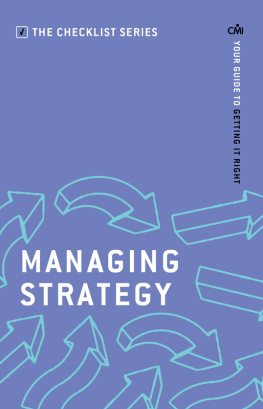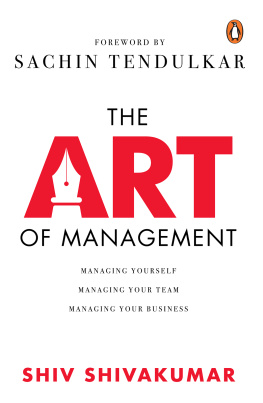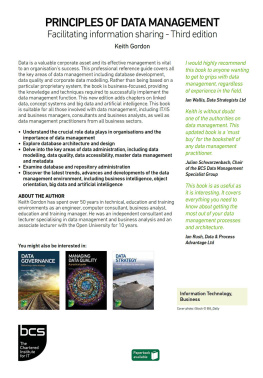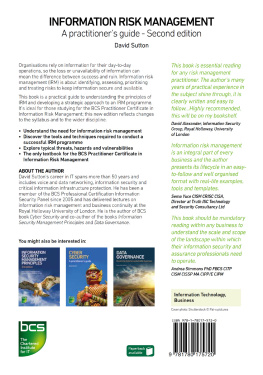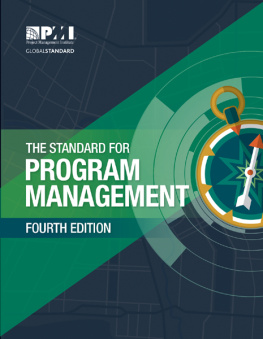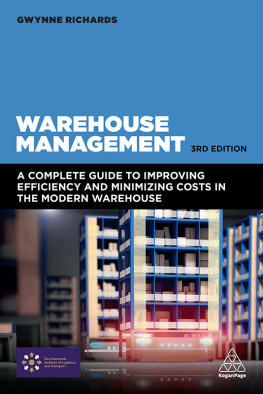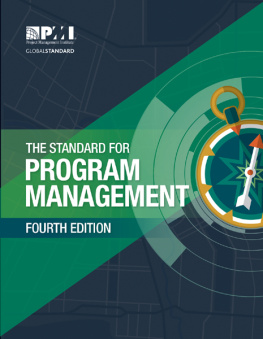Chartered Management Institute - Managing Strategy
Here you can read online Chartered Management Institute - Managing Strategy full text of the book (entire story) in english for free. Download pdf and epub, get meaning, cover and reviews about this ebook. publisher: Profile, genre: Business. Description of the work, (preface) as well as reviews are available. Best literature library LitArk.com created for fans of good reading and offers a wide selection of genres:
Romance novel
Science fiction
Adventure
Detective
Science
History
Home and family
Prose
Art
Politics
Computer
Non-fiction
Religion
Business
Children
Humor
Choose a favorite category and find really read worthwhile books. Enjoy immersion in the world of imagination, feel the emotions of the characters or learn something new for yourself, make an fascinating discovery.
- Book:Managing Strategy
- Author:
- Publisher:Profile
- Genre:
- Rating:4 / 5
- Favourites:Add to favourites
- Your mark:
- 80
- 1
- 2
- 3
- 4
- 5
Managing Strategy: summary, description and annotation
We offer to read an annotation, description, summary or preface (depends on what the author of the book "Managing Strategy" wrote himself). If you haven't found the necessary information about the book — write in the comments, we will try to find it.
Managing Strategy — read online for free the complete book (whole text) full work
Below is the text of the book, divided by pages. System saving the place of the last page read, allows you to conveniently read the book "Managing Strategy" online for free, without having to search again every time where you left off. Put a bookmark, and you can go to the page where you finished reading at any time.
Font size:
Interval:
Bookmark:
MANAGING STRATEGY
The Chartered Management Institute is the only chartered professional body in the UK dedicated to promoting the highest standards of management and leadership excellence: CMI sets the standard that others follow.
 THE CHECKLIST SERIES
THE CHECKLIST SERIES
MANAGING STRATEGY

First published in Great Britain in 2014 by
Profile Books Ltd
3a Exmouth House
Pine Street
Exmouth Market
London EC1R 0JH
www.profilebooks.com
Copyright Chartered Management Institute 2014
The moral right of the authors has been asserted.
All rights reserved. Without limiting the rights under copyright reserved above, no part of this publication may be reproduced, stored or introduced into a retrieval system, or transmitted, in any form or by any means (electronic, mechanical, photocopying, recording or otherwise), without the prior written permission of both the copyright owner and the publisher of this book.
A CIP catalogue record for this book is available from the British Library.
eISBN: 978 1 78283 030 6
All reasonable efforts have been made to obtain permission to reproduce copyright material. Any omissions or errors of attribution are unintentional and will be corrected in future printings following notification in writing to the publisher.
About the checklist series
Management can be a daunting task. Managers are expected to provide direction, foster commitment, facilitate change and achieve results through the efficient, creative and responsible deployment of people and other resources. On top of that, managers have to manage themselves and develop their own personal skills. Just keeping up is a challenge and we cannot be experts in everything.
The checklists in this series have been developed over many years by the Chartered Management Institute (CMI) to meet this challenge by addressing the main issues that managers can expect to face during their career. Each checklist distils good practice from industry to provide a clear and straightforward overview of a specific topic or activity, and has been reviewed by CMIs Subject Matter Experts Panel to reflect new research and changes in working life.
The series is designed both for managers who need an introduction to unfamiliar topics, and for those who want to refresh their understanding of the salient points. In more specialised areas for example, financial management checklists can also enable the generalist manager to work more effectively with experts, or to delegate more effectively to a subordinate.
Why is the checklist format useful? Checklists provide a logical, structured framework to help professional managers deal with an increasingly complex workplace they help shape our thoughts and save us from being confused by too much information. At the same time, checklists help us to make good use of what we already know. They help us to remember things and prevent us from forgetting something important. Thus, no matter how expert we may already be, using checklists can improve outcomes and give us the confidence to manage more effectively, and to get the job done.
About this book
This book is aimed at anyone who is seeking a practical introduction to organisational strategy. Using a combination of action-oriented checklists and handy short summaries of the ideas of seminal management thinkers, Managing Strategy explains what to do and what to avoid. The checklists take you logically through a journey, starting with helping you to understand your organisation and carry out strategic analysis, through to guidance on evaluating strategic options, implementing your strategy, and measuring and evaluating its success. Along the way there are handy guides to objective setting, the balanced scorecard, decision making and the role of the board. This concise and indispensable handbook finally lays out the dos and donts of various strategic options, such as mergers and acquisitions, strategic partnering and deciding whether to outsource.
Introduction
Strategy is a word of only eight letters. Yet those eight letters are the making or breaking of many a manager. Originating and forming a well-honed strategy, articulating it well enough to gain the necessary commitment, and then implementing, monitoring and adapting it tests a wide range of management skills and characteristics. Not least our judgement and interpersonal skills, as well as our fundamental strength of character.
Effective managers who can turn a vision into a successful reality, whether it was their vision or not, do so through having a robust and well-executed strategy. As I once put it to a rampant entrepreneur who was long on ideas and short on action, Strategy is a vital connection between the dream and the money, but that connection is only possible if the strategy is realistic and the resources are in place to implement it.
Few people can combine the talents of the visionary, the strategist and the implementer. Smart leaders know this as well as they know where their own talents lie. They know their managers well, and they build teams that collectively can complement them in order to turn their dreams into thriving organisations. This is as true in a business as it is in social enterprise or a government department.
The difficulty of getting strategy right and the absence of one right way to decide on the best strategy might explain why levels of interest in strategy and strategy-making continue to be so high. Gurus on the topic such as Michael Porter, Henry Mintzberg, Gary Hamel and C. K. Prahalad have long grappled with the question of why some organisations are more successful than others. A steady stream of books and articles continues to be published as old models of strategy-making are critiqued and new ideas emerge.
There are many definitions of strategy, including the CMIs own simple one: The direction an organisation takes with the aim of achieving business success in the long term.
This resonates with Alfred D. Chandlers classic: The determination of the basic long-term goals and objectives of an enterprise, and the adoption of courses of action and the allocation of resources necessary for carrying out these goals.
If you want to go back further, the term strategy is derived from the Greek strategia, meaning generalship. It was originally used in the context of warfare to describe the overall planning of a campaign, as opposed to the tactics. Indeed, before business publishing came to claim the word, writers on strategy tended to focus on lessons drawn from the achievements of legendary military leaders ranging from Sun Tzu, a Chinese general from the time of Confucius, and the Prussian general Carl von Clausewitz to the British naval hero Horatio Nelson.
The word strategy was reportedly first applied to business after the Second World War. However, it was the landmark publication in 1965 of Igor Ansoffs book Corporate Strategy which led to the development of a systematic approach to strategy formulation and strategic decision-making. This evolved into the structured discipline of strategic planning which sought to set objectives and produce strategic plans to be followed by the organisation for the coming year and beyond.
The basic model rested on a formal process of:
- appraising the external and internal environments
- using a range of analytical and forecasting tools
- choosing a strategy based on the results of the analysis
- setting objectives
Font size:
Interval:
Bookmark:
Similar books «Managing Strategy»
Look at similar books to Managing Strategy. We have selected literature similar in name and meaning in the hope of providing readers with more options to find new, interesting, not yet read works.
Discussion, reviews of the book Managing Strategy and just readers' own opinions. Leave your comments, write what you think about the work, its meaning or the main characters. Specify what exactly you liked and what you didn't like, and why you think so.

